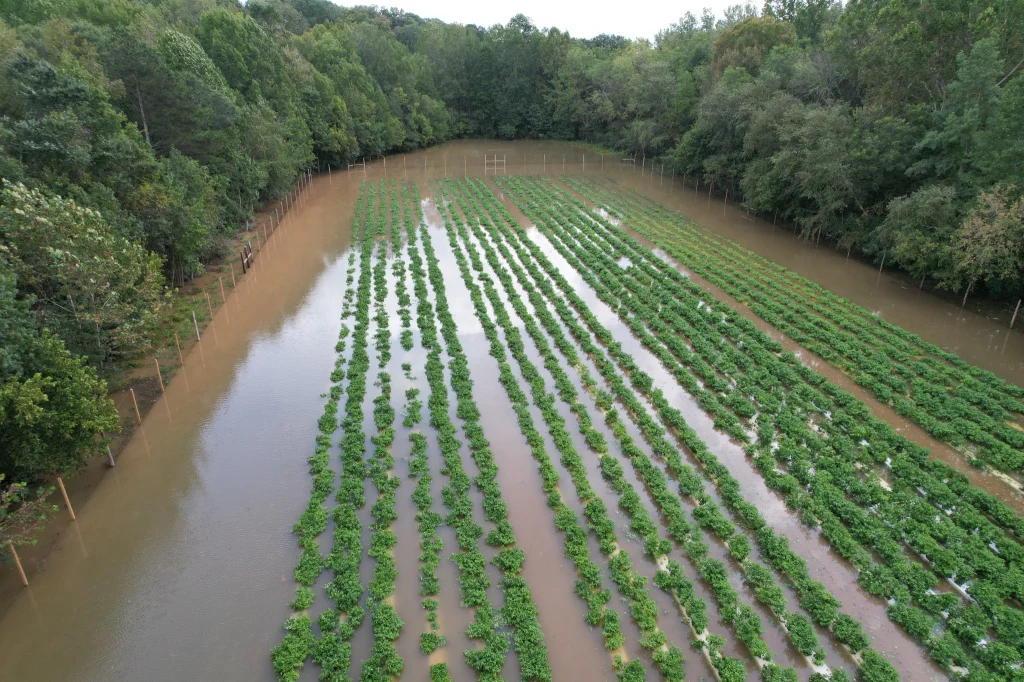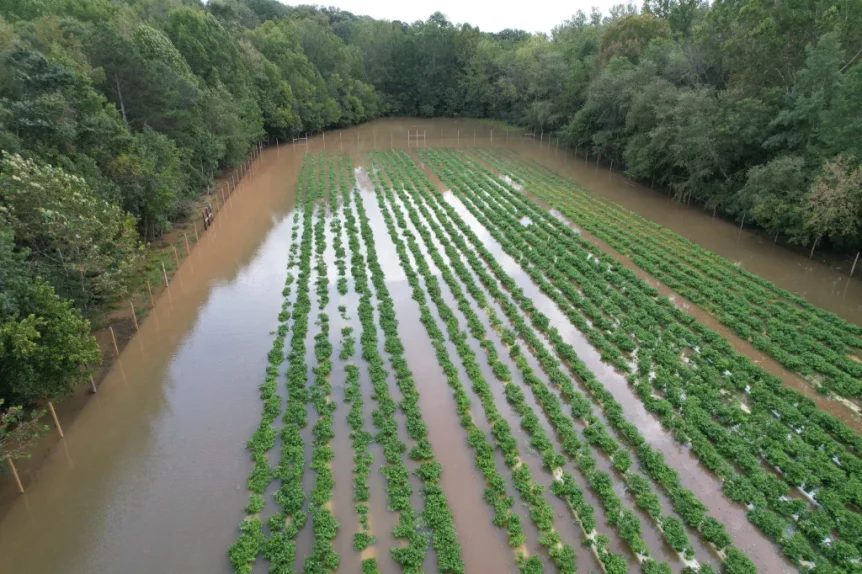
By Clint Thompson
Hurricane Helene left its mark on agriculture in the Southeast, impacting farms in South Carolina.
Andy Rollins, county Extension agent, said his area’s muscadine production was especially impacted by the major flooding and high winds that accompanied Helen’s trek through the Carolinas.
“Our muscadine crop, we only have a few growers, but the ones that grow for fresh market, it was a serious impact. We were in the middle of harvests, and we couldn’t move them anywhere, couldn’t sell them,” Rollins said. “The places that we would normally sell them to couldn’t buy them because they didn’t have power. They couldn’t keep them refrigerated. We didn’t know if you would have diesel coming back, if you tried to deliver them for sales.
“It shut down our grape market. That was probably our single biggest (impact) of farms that rely on the crop for a living.”
Rollins said there a couple of large muscadine growers in the area.
Muscadines were just one crop that was vulnerable when Helene moved through the Southeast on Sept. 26 and 27. Much of South Carolina’s fall vegetable crops also succumbed to the devastation.
“Fall peppers, fall cucumbers, fall tomatoes, that’s the kind of thing where we lost a lot of money from the flooding. That was along the river bottoms up in Marietta, multiple farms up in there and some over on the Catawba River where the banks overflowed and just flooded out to where you couldn’t hardly see the crop from a drone’s eye view,” Rollins said.
“Some of it was worse than others. Winds were everywhere. The flooding, the people up in Marietta and the bigger vegetable farms up there had some issues with flooding of crops. That was pretty devastating.”










